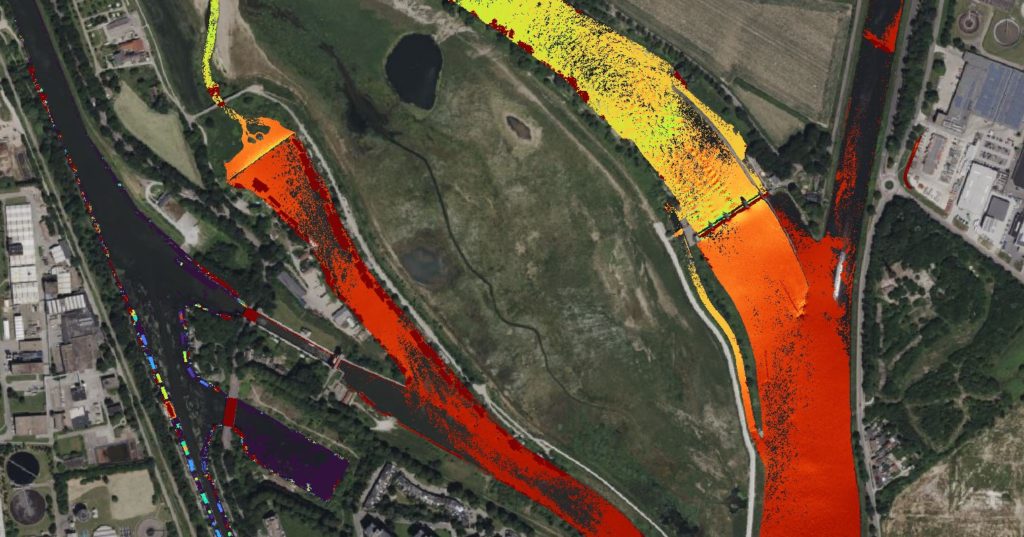In the domain of Data Analysis, Modeling and AI, DigiShape focuses on the broad use of artificial intelligence (AI) and the development of Digital Twins to make the water sector future-proof. Due to the increasing impact of climate changes, such as flooding due to sea level rise, extreme rainfall and prolonged drought, AI and Digital Twins offer new solutions. This will allow traditional methods not only to be improved but also to be applied on a larger scale.
Digital Twins – digital copies of physical water systems – make it possible to analyse complex scenarios in real time and simulate future situations. In addition, DigiShape develops machine learning algorithms and surrogate models that can provide new insights with data from both local and external sources. This technology makes it possible to run simulations accurately while scaling in time and space. This will enable us to better predict how water systems will respond to changes and make better informed decisions.
DigiShape is also committed to making AI techniques accessible by sharing knowledge and experiences from experiments and practical applications. In doing so, we contribute to a flexible and resilient water management system that is ready to tackle the challenges of climate change.

Related News
Understanding and comparing the ecological impacts of projects DigiShape is committed to smart and sustainable solutions in the water sector. [...]
‘The Netherlands is a paradise for data scientists.’ At least, if you ask Juan Pablo Aguilar Lopéz of TU Delft. [...]
On 2 July, DigiShape organised a working session of the NL AIC Water and Climate Working Group to explore how [...]
On Wednesday, June 12, Koen van Asselt from Deltares gave an online technical session about dune erosion prediction using convolutional [...]
On Wednesday, May 29, Thomas Stolp from HKV gave an online technical session about Bed level forecast in the Waal [...]
On Wednesday, April 25, we organized the session “AI for Water and Climate” at the Dutch AI Congress. Chris Karman [...]






